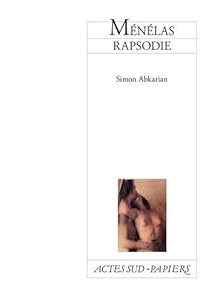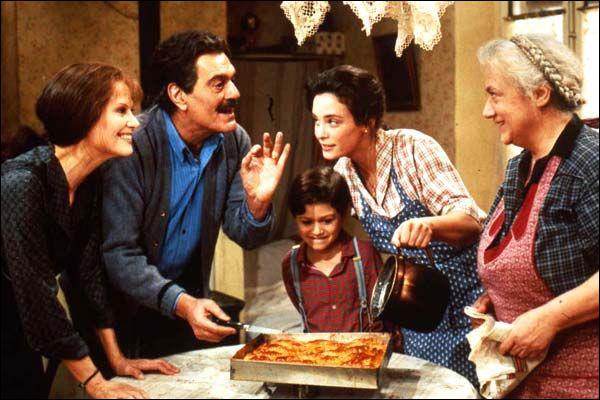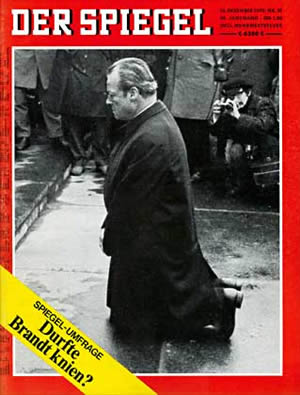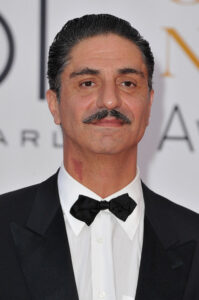italian version of this interview can be found at the following link ( on 2 pages)
la versione in italiano può essere letta al link sotto (su due pagine)
http://ladomenicadivicenza.gruppovideomedia.it/a_ITA_5643_1.html
The following interview is with a French-armenian actor-director, singer, playwriter, Simon Abkarian. He staged a piece in Teatro Olimpico dedicated to Menelaus, a character of the greek epic and mythology that is usually forgotten since more often his wife Helen is connected to her most famous lover, Paris. In this pièce Menelaus is the man that talk about his greatest love for the woman that has chosen him and that then is gone away. The piece is really beautiful and since my name is Elena I got really involved in the show that deeply moved me. With Mr. Abkarian I didn’t talk only about the show but also about the Armenian Genocide, which is a subject I’m interested in.
It’s a text of 2012, did you do some changes, thinking about the Teatro Olimpico?
Simon Abkarian: “No, the edition text is longer, the text for the play is shorter, they are 23 pages. It’s always the same but on the book is different. It’s a book published by Actes Sud, all my plays are published by Actes Sud”
In the greek tragedies the events are usually fated and people accept the unavoidable, even though they suffer. Paris kidnaps Helen and because of the Oath of Tyndareus the war is declared. In this piece Menelaus doesn’t accept the will of the goddess Aphrodite to promote Paris, having Helen fallen in love with him. The text says he’s the sacrificial bull, as all the hate that he feels for Helen and the grudge for Paris were a punishment to serve. Is Menelaus the scapegoat?
“Menelaus is usually badly depicted: he’s a bit the figure of the man that allows his woman to leave, this is what I’m interested in, the matter of love and separation. I don’t know whether Helen has been kidnapped, she accepts to leave, I guess that if she wouldn’t leave she didn’t do it and I also think that the War of Troy was because of a woman: in that period, until not so long ago in some places like in Armenia, Albania and Lebanon, the most precious entity was the woman and if you took a man’s woman you took him everything away. Since it ‘s a man-centered community, Menelaus is really unpopular because he hesitates to leave. What I wanted to do mostly was to talk about Menelaus’ heartfelt sadness and love because the more we talk about the heartfelt sadness the more we talk about his love, and if we talk about his love, we talk about Helen and if we talk about Helen we talk about the woman and what I’m interested in, today, at my age, 52 years, is to talk about the women in my plays. I have to understand what’s this reason that prevents women to live under a point of view of equality with men.”
Are there any problems or a debate about the equality between men and women? In France!?
“Yes there’s a problem”
Why?
“Because France is not the modern and advanced Country that presumes to be. Since there is a debate about equality it means that there is a problem, the day when there will be no more debate then we will have advanced. The day when a woman engineer will be paid the same as a man engineer we will have advanced, the day when we will say to kids that they can play mechanics if they’are called “Giuliano” and that is they’re called Silvia they can do mechanics too: women are able to drive an airplane, a Country , a theatre too and also to talk about their concept. For instance, when u see the roman catholic Church or the orthodox there are no woman that say “I’m going to say the mass for you”, why that? Haven’t woman enough spirituality? Anglicans do it but seeing a priestess has become folklore, So I don’t want to end my life telling myself that I’ve not tried to remedy this injustice.”
But in this piece you don’t talk about Helen’s personality, it seems that Menelaus is just a crush for her, she hasn’t the upheavals he feels
“I talk about love. When we love someone we love them even when they leave and I think that the strength of that love, the unconditional love, keeps to the myths. It’s a totally high-tone way to talk about love. It’s also a way to unfold and spread out the words because in the latest 20 years ( I see and hear what happens in your place but I better know what happens in France) the vulgarity of politicians, the vulgarity of certain intellectuals, the vulgarity of certain artists, the shortening of the language have allowed that the thought is no more able to spread out. A country is not a company, you cannot drive a country as if it was a company, a country has a verticalness, a history, and I felt the need to deploy the word, say again some terms because it’s through the words that the thought come out, if there are no words, there are no thoughts, if there are no thoughts there is no possible outlook and no possible salvation.”
In the piece is a continuous wave between love and hate,  sometimes expressed by very strong words but also very delicate. One of the most important is certainly the pun between the name “Helen” and word “hate” ( in French Hélène- haine EDDn) that equally keeps up the interpretation and the playwriting. In Italian this coincidence is completely lost. Do you think that the translation could damage the show?
sometimes expressed by very strong words but also very delicate. One of the most important is certainly the pun between the name “Helen” and word “hate” ( in French Hélène- haine EDDn) that equally keeps up the interpretation and the playwriting. In Italian this coincidence is completely lost. Do you think that the translation could damage the show?
“No, it was the first time that the Italian audience saw the piece; from the moment you have to stage a piece that has to be translated, it anyway carries the seed of its decline: shouldn’t we stage the piece or should we do it losing some shades? I prefer doing the piece scarifying some shades.”
You equally use these two words, when you turn back to the perspective e say them out loud, like a tribute, to honour and gather together the history, the myths, and the civilizations that have followed one after the other during the centuries through art and literature: Helen, Oedipus, wars, exiles, but also the greek art and literature that deeply influenced us Italians and our visual culture too.
“I think that the tribute is if we remember all the women and the men that has worked before us, that there is a line of descendants, that we cannot forget where we come from and who we are: if nowadays we think and write and built ourselves as creative and cultural nations is also thanks to Greeks, we began writing an think like they did, followed by Romans and so on. Today, when you go to a museum, if you don’t know Genesis, greek myths or Ovid you don’t understand anything of the panting hanging on the walls nor the sculpture or literature. I’ve studied latin and greek at the jesuits’ in Lebanon, there was a time when there was the religion but I think that artists are more honest than religious people, then there is the time when we say that we don’t need all of this and that it’s important to have money, women and cars but like this we only go against a big wall and only thing that can save us is the artistic creation that will give us , the population children of those civilizations, the verticalness to be able to pass by that wall.”
You are Armenian, and you played in the movie “Ararat” by Atom Egoyan and in other occasions in other dramas on stage you had the chance to talk about this subject . You have also been living in California where there is the largest armenian community of United States, Another armenian-lebanese artist like you, based in California is Serj Tankian from band System of a Down, who many times, in his song, has talked about the Armenian Genocide and war. There’s the movie “The Lark Farm” by Taviani brothers from Antonia Arslan who often talks about two French movies of the early 90’s, “588 Rue Paradis” and “Mayrig” with Claudia Cardinale  and Omar Sharif. In 2015it will be the 100th anniversary of the Armenian Genocide and despite the work of so many artists, there is not yet a worldwide awareness as it happened with the Holocaust after Spielberg’s movie “Schindler’s list”: why there are no Armenian “Schindler’s list” or “Anna Frank Museum”?
and Omar Sharif. In 2015it will be the 100th anniversary of the Armenian Genocide and despite the work of so many artists, there is not yet a worldwide awareness as it happened with the Holocaust after Spielberg’s movie “Schindler’s list”: why there are no Armenian “Schindler’s list” or “Anna Frank Museum”?
“Jewish Holocaust took place in Europe, Armenian Genocide took place in a desert in Middle East, in the desert, between Syria and Anatolia. As the Holocaust took place, in France there is a long history of persecution against the Jews, from the Dreyfus Affair we can date back to Middle Ages. I think that a difference that there is between the Holocaust and the Armenian Genocide is first of all in the industrialization of death, they did a very well organized industry of death. Second thing, or one of the most important things is that Germans have had a man, Willy Brandt (prime minister in 1970,criticized in  Germany because of Warsaw Genuflection, Nobel Prize of Peace in 1971-EDDnote) who knelt begging forgiveness to the Jewish people in behalf of the Germans. In Turkey the government spend millions of dollars every year to deny the Armenian Genocide, there are some lobbies that are sent by the government to Washington, Paris, Bruxelles. So this is also another difference: before us we have we have some people that works to go on saying: “we did nothing” and on the other side there is a common european awareness where many heads of state gathered together and declared: this fault has happened, we have to admit it and we have to work to never repeat it again. In Turkey they go on with this idea of hate against us, I’m talking about the government, not Turkish people.”
Germany because of Warsaw Genuflection, Nobel Prize of Peace in 1971-EDDnote) who knelt begging forgiveness to the Jewish people in behalf of the Germans. In Turkey the government spend millions of dollars every year to deny the Armenian Genocide, there are some lobbies that are sent by the government to Washington, Paris, Bruxelles. So this is also another difference: before us we have we have some people that works to go on saying: “we did nothing” and on the other side there is a common european awareness where many heads of state gathered together and declared: this fault has happened, we have to admit it and we have to work to never repeat it again. In Turkey they go on with this idea of hate against us, I’m talking about the government, not Turkish people.”
I know that in the turkish universities there is a debate.
“Yes they are beginning. Also, the genocide: the first generation has tried to survive, the second tried to establish, the third, as we have seen, has doctors and lawyers and so on, the fourth generation is the one of the artist that are  coming. We need time to establish and also we have to say that there’s a great tradition of jewish filmmakers from Germany, France and Italy that went to United States and gave a new breath to American cinema, the authors, producers, and there is a great traditions because at that time in US people said that cinema was crap and now they have done an industry of that but at that times making cinema was nothing. Turkey plays a game that is never clear, with Kurds they did a peace agreement and now we realize that they help islamists to harm Kurds of Syria; so it’s complicated, the Turkish expansionist and panturkist politics have never died and they have never been able to swallow the loss of the Ottoman Empire, that to talk about why there are few Armenian movies about this subject: because turskish lobbies do put pressure on that.”
coming. We need time to establish and also we have to say that there’s a great tradition of jewish filmmakers from Germany, France and Italy that went to United States and gave a new breath to American cinema, the authors, producers, and there is a great traditions because at that time in US people said that cinema was crap and now they have done an industry of that but at that times making cinema was nothing. Turkey plays a game that is never clear, with Kurds they did a peace agreement and now we realize that they help islamists to harm Kurds of Syria; so it’s complicated, the Turkish expansionist and panturkist politics have never died and they have never been able to swallow the loss of the Ottoman Empire, that to talk about why there are few Armenian movies about this subject: because turskish lobbies do put pressure on that.”
In the movie “007 Casino Royale” you are one of the villains. In a French tv series you played the role of a gangster. The villain is almost always the most interesting. Is it easier to create and to dig up from violence or from positive feelings?
“I think that we cannot split them, I think that everything works with its own contrary: if there’s no darkness then there’s no light, there’s no silence without sound, I think it’s important to let the light come out from the darkness and black or vice versa, because the human soul is never only gentle or malicious. I think that on the dramaturgy level it’s much more interesting to have some characters that are in contradiction with themselves but that fight for something right and beautiful, the complexity that a woman or a man can have before a thing or another: should I kill him or not? Should I stay or leave? This is what it’s beautiful in theatre, cinema and literature, to have characters that send back to you and you say “it’s me”. The only thing that it’s different is the language, it’s an artifice, the language of theatre for me, or the language of images: what is beautiful is that suddenly we are moved by something that is completely built, invented and artificial, in the high toned sense of the term. What I’m mostly afraid of, in the artistic creation, is realism, to me realism doesn’t effect me.”
some tour dates of Ménélas Rebétiko Rapsodie in France
12-3-2015 / 14-3-2015 Théâtre National de Nice
17-3-2015 Théâtre La Baleine de Onet le Château
19 et 20 -3- 2015 Théâtre de l’Union de Limoge
Simon Abkarian will perform in a rock ‘n’ roll concert at Balajo in Paris in november
https://www.facebook.com/events/484759844961624/?fref=ts
excerpt of the piece
